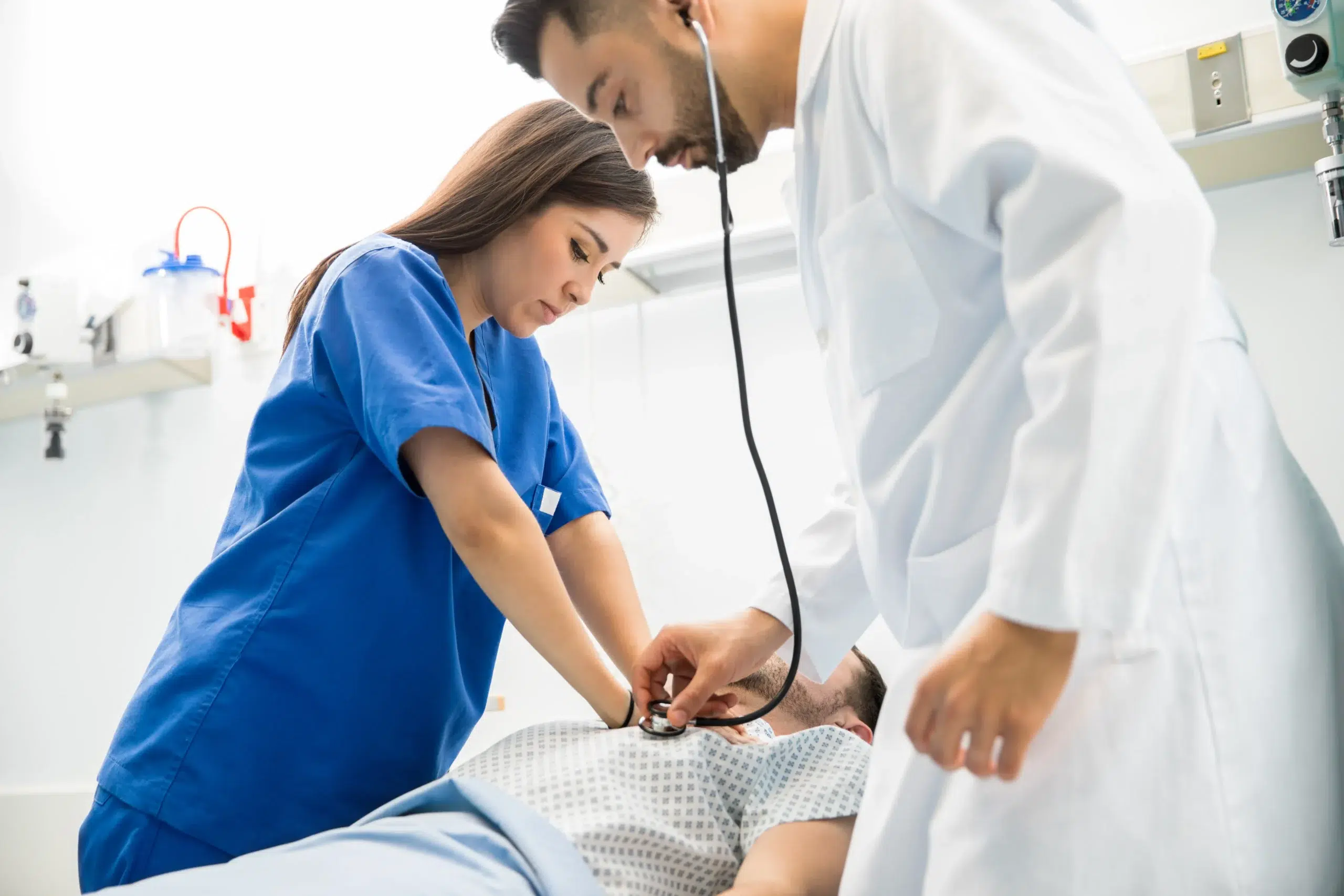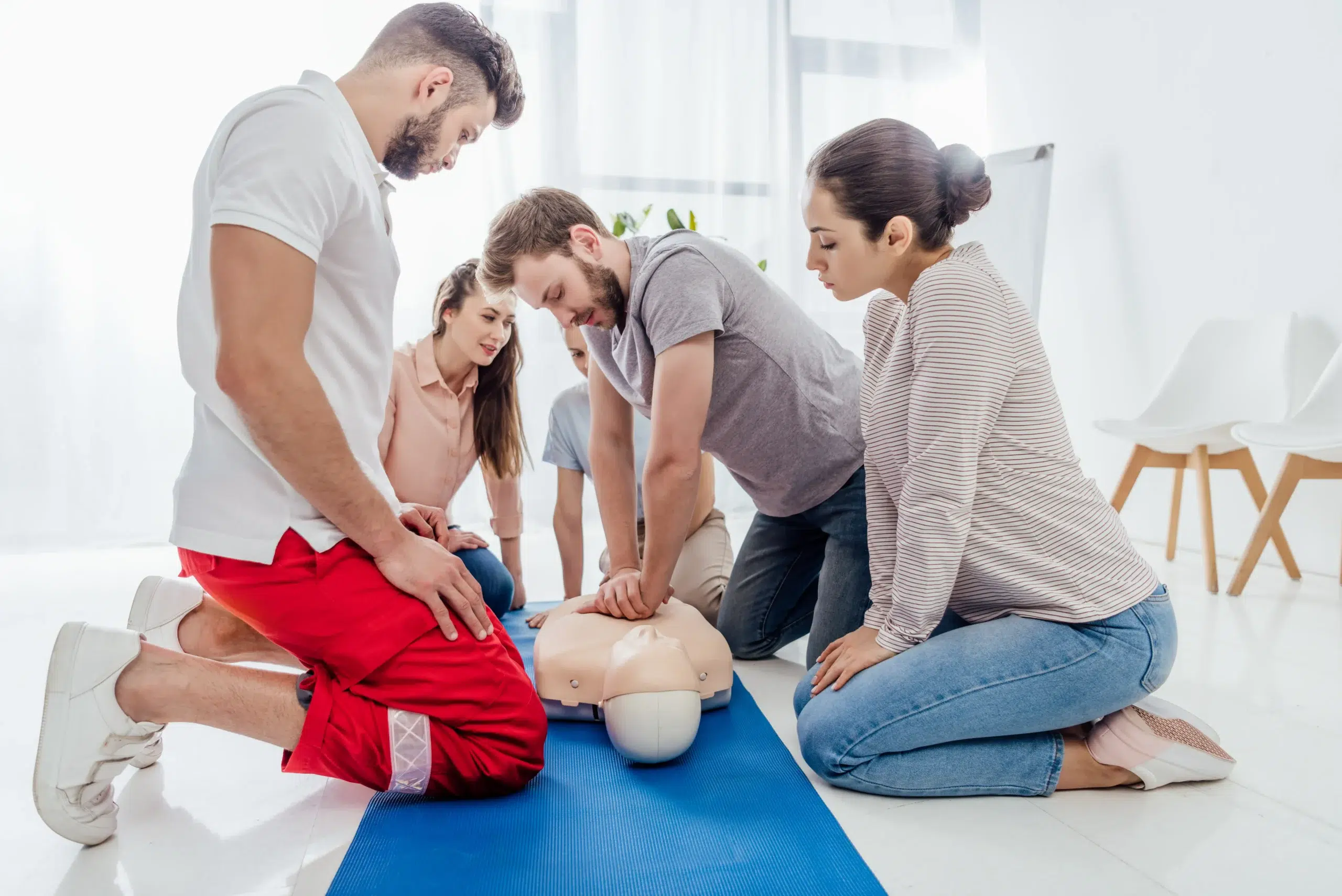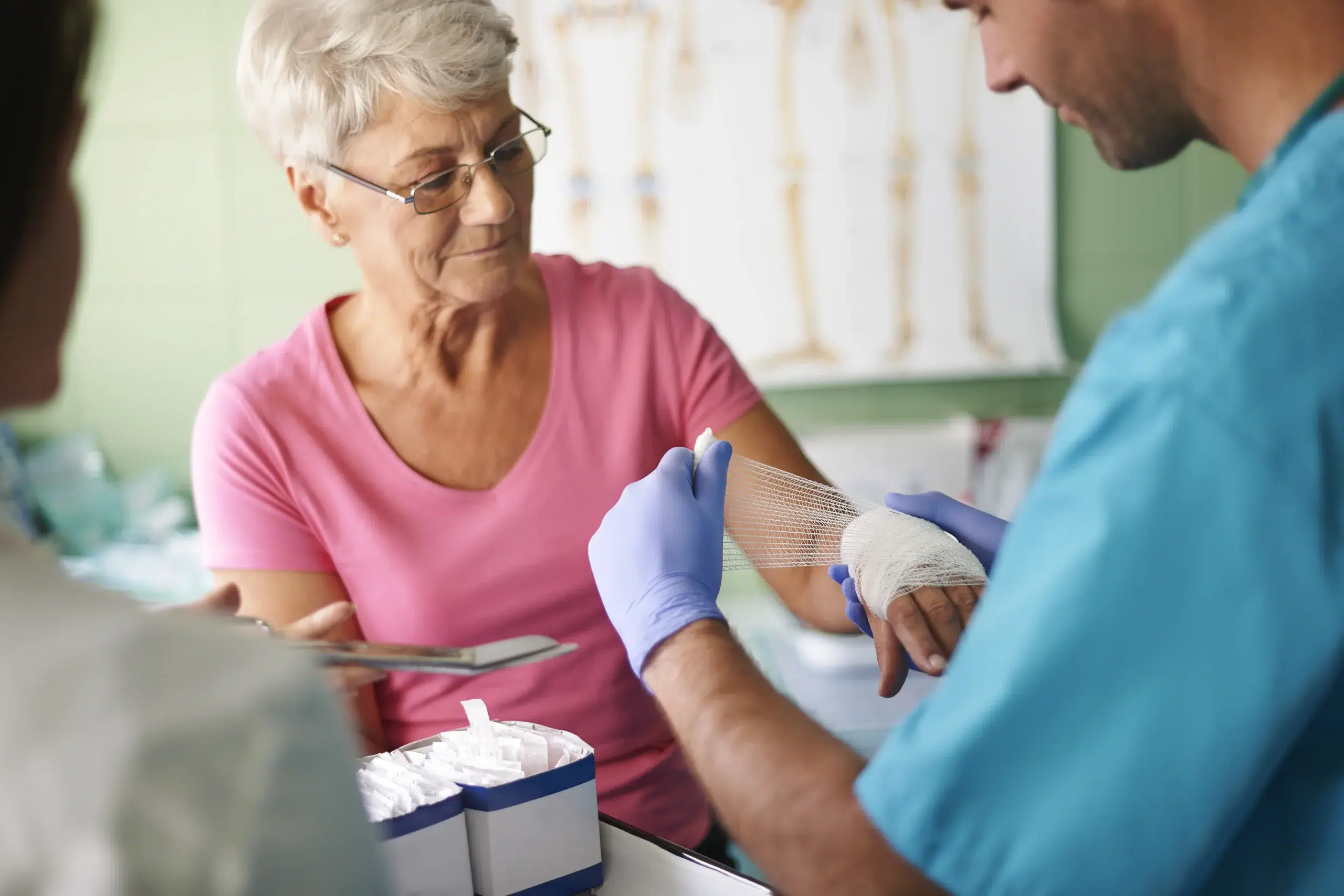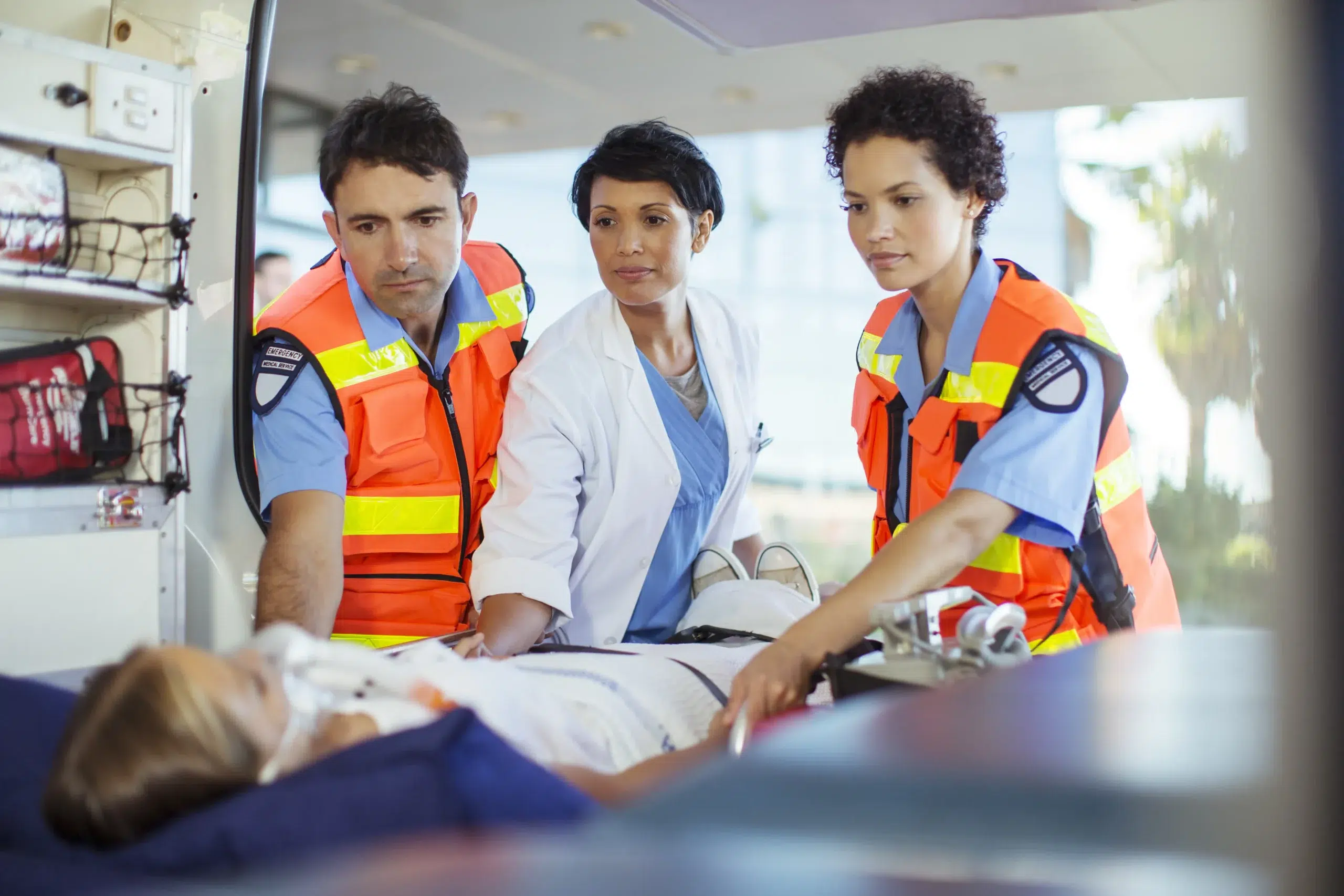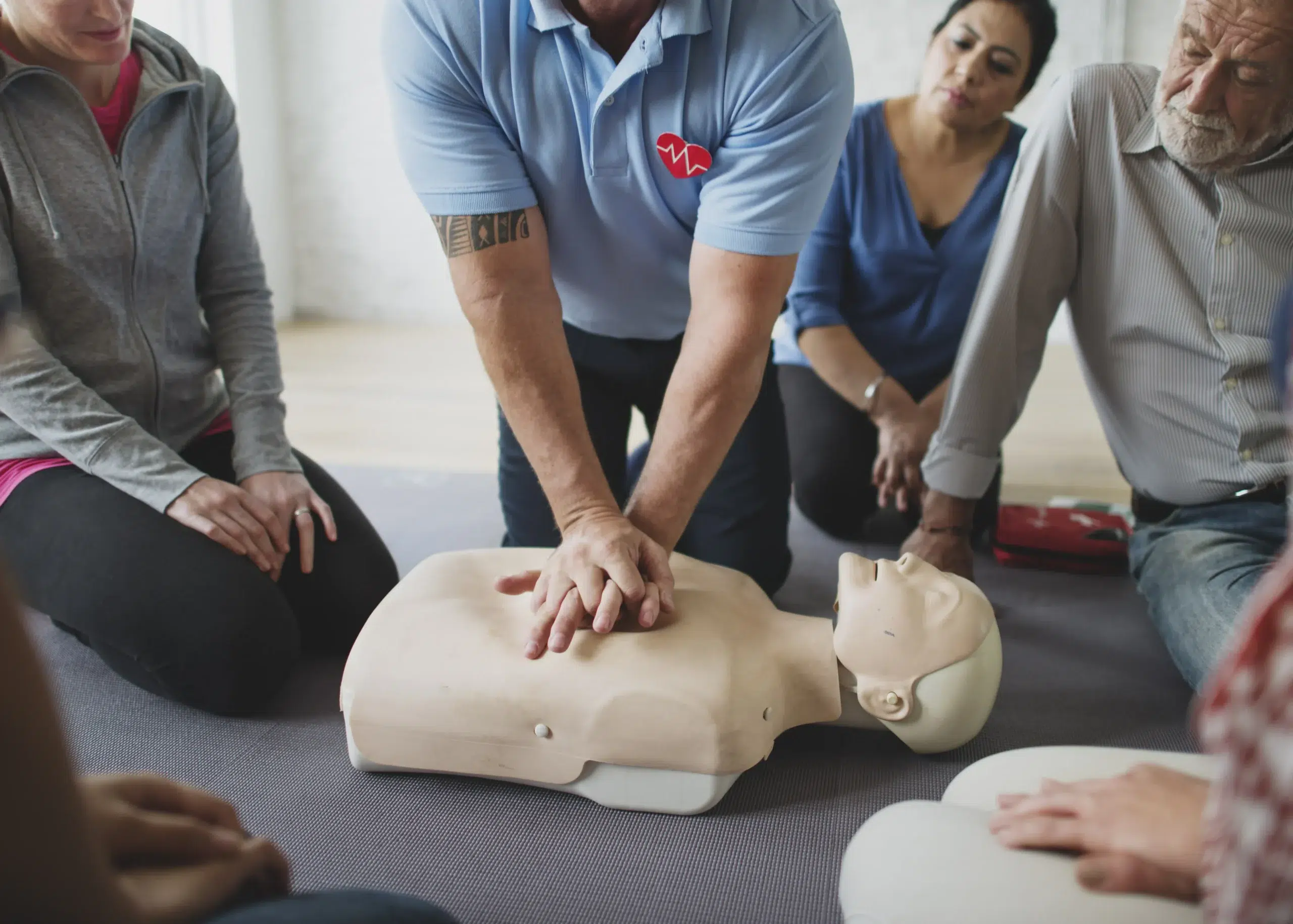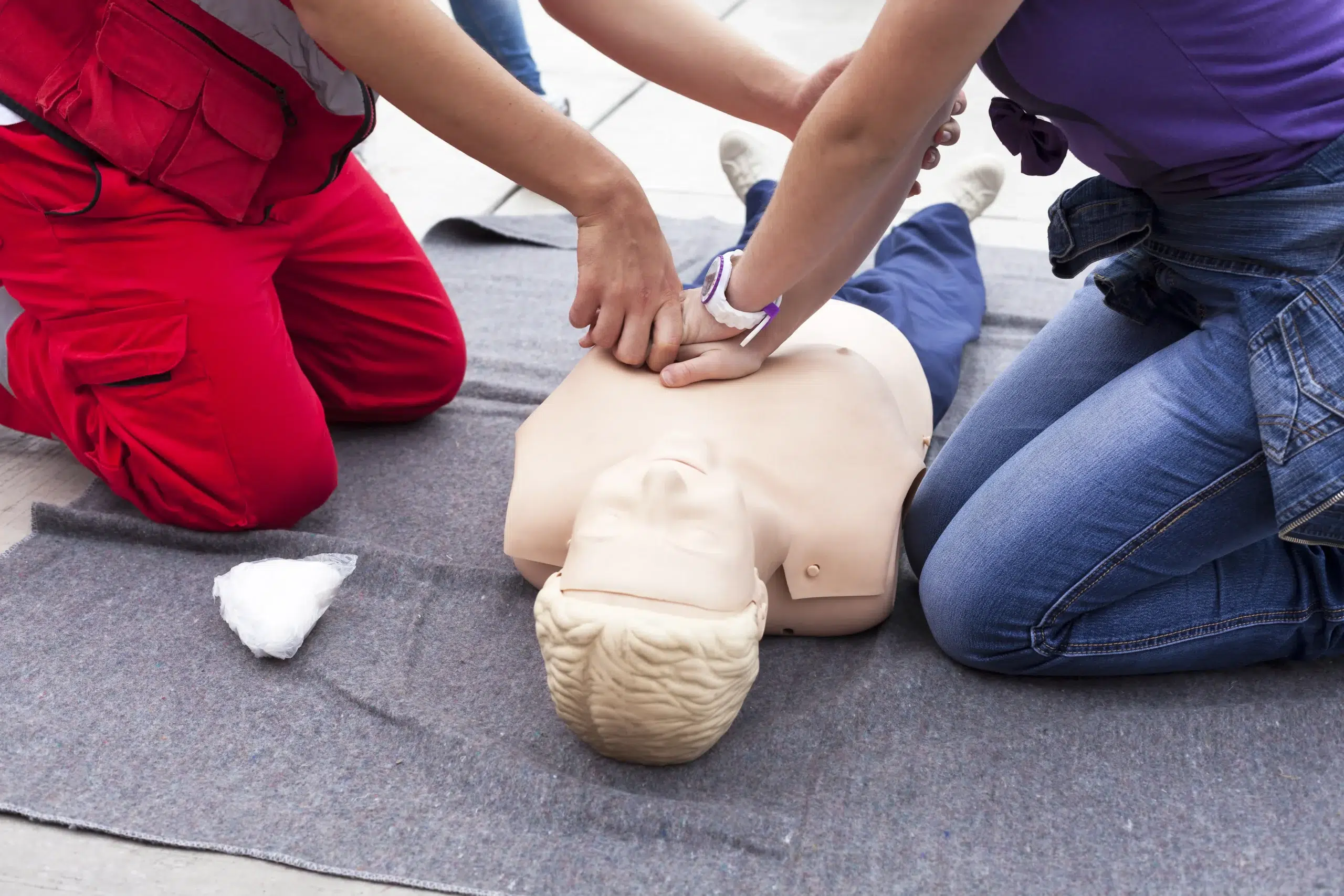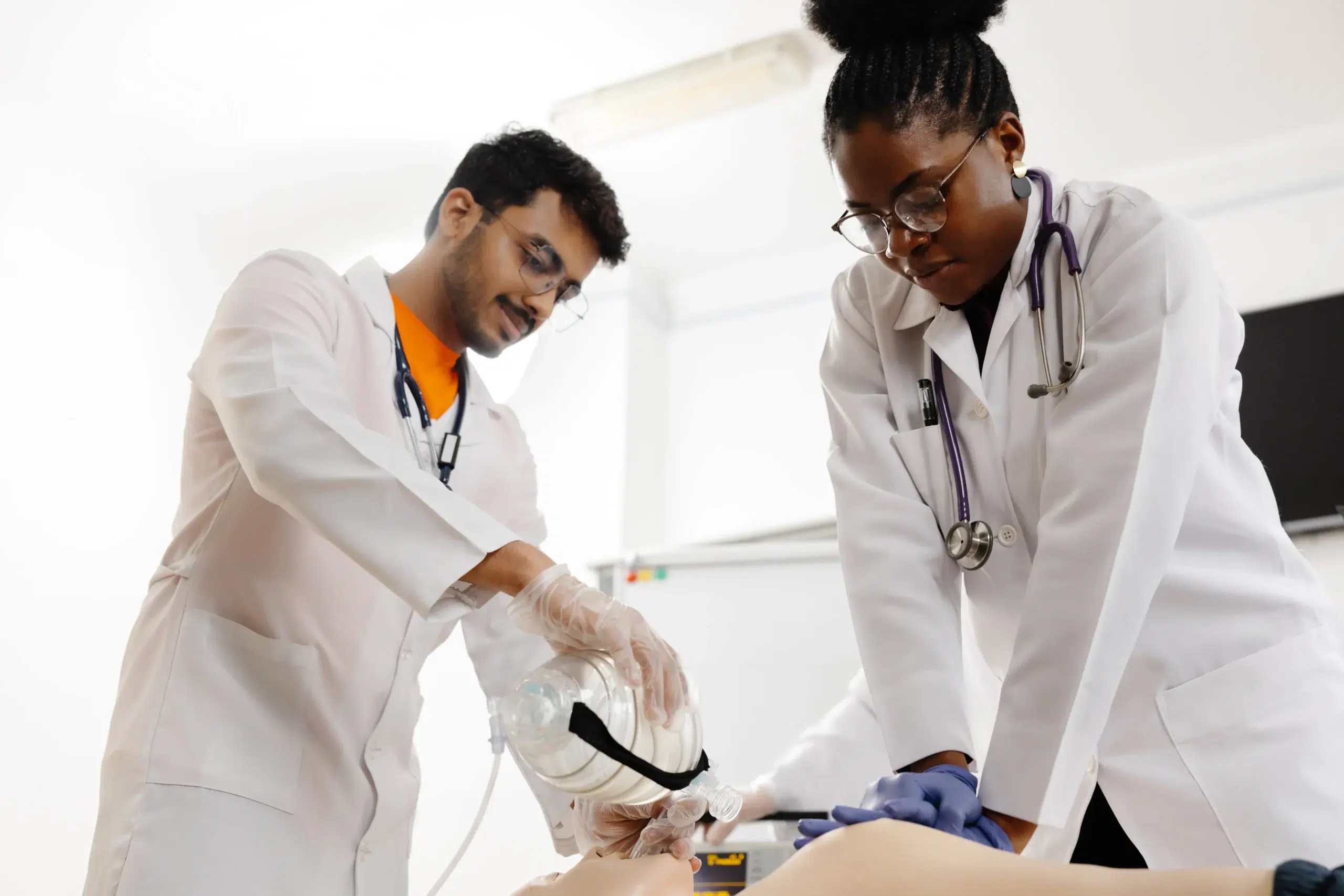Faced with a medical emergency, would you know what to do? Learning CPR can empower you to take action and potentially save a life. If you’re searching for “Oakland CPR classes near me,” this comprehensive guide will walk you through the process of finding the right course, understanding certification options, and gaining the skills you need to respond confidently in a crisis. We’ll cover everything from basic CPR to more advanced certifications like ACLS and PALS, ensuring you have the resources to make informed decisions about your training.
Key Takeaways
- CPR training equips you to handle medical emergencies: Whether you’re a healthcare professional, a parent, or simply someone who wants to be prepared, CPR certification gives you the skills to potentially save a life.
- Finding the right CPR class in Oakland is straightforward: Explore various providers like Oakland CPR Courses, the American Red Cross, and the American Heart Association to find a course that aligns with your schedule and budget.
- Staying certified requires ongoing effort: Regular refresher courses ensure your skills remain sharp and aligned with the latest guidelines, maximizing your effectiveness in a crisis.
What is CPR?
CPR stands for cardiopulmonary resuscitation. It’s a lifesaving technique used in emergencies when someone’s breathing or heartbeat has stopped. This can happen after a heart attack, drowning, or other medical crisis. CPR combines chest compressions and rescue breaths to circulate oxygenated blood to the brain and other vital organs until professional medical help arrives.
Why CPR Matters
Learning CPR equips you to handle medical emergencies and potentially save a life. Think of it as a bridge between the moment of crisis and the arrival of paramedics. In fact, studies show that early CPR can double a person’s chance of survival after cardiac arrest. Having these skills can make all the difference.
Who Needs CPR Training?
CPR and first aid are essential life skills that empower you to respond effectively to emergencies. While beneficial for everyone, CPR training is especially important for healthcare providers, first responders, and those who supervise children. Parents, teachers, coaches, and childcare providers, for example, would all find these skills invaluable. Even if you don’t work in a high-risk field, knowing CPR can give you the confidence to act quickly and effectively if an emergency arises. Oakland CPR Courses offers a range of CPR certification courses designed for various professions and individuals in Oakland, Alameda, and Berkeley.
CPR Classes in Oakland
Finding the right CPR class can feel overwhelming with so many options. This section breaks down the different types of CPR classes available in Oakland, so you can choose the best fit for your needs.
BLS for Healthcare Providers
If you’re a nurse, doctor, EMT, or other healthcare professional, BLS (Basic Life Support) certification is likely a job requirement. These courses cover core life-saving skills, including high-quality CPR, using a bag-valve mask, and relieving choking. Oakland CPR Courses offers BLS certification through the American Heart Association, ensuring you receive a recognized and respected credential. These classes are designed specifically for healthcare providers and follow the latest AHA guidelines. For a comprehensive list of healthcare providers who may require this training, check out this resource.
Heartsaver CPR AED
Heartsaver CPR AED courses are a great option if you’re not a healthcare provider but still want to learn essential life-saving skills. This course, often offered through the American Red Cross, teaches you how to perform CPR and use an AED (Automated External Defibrillator) on adults, children, and infants. It’s a good choice for community members, teachers, coaches, or anyone who wants to be prepared for an emergency. The Red Cross also offers numerous first aid courses that can complement your CPR training.
Pediatric CPR & First Aid
Parents, caregivers, nannies, and anyone working with children should consider taking a Pediatric CPR and First Aid class. These courses focus specifically on responding to emergencies involving infants and children. While some general CPR classes cover pediatrics, a dedicated pediatric course provides more in-depth training and practice. Check with Oakland CPR Courses for upcoming pediatric-focused classes. They offer group discounts which can be particularly helpful for daycare centers or groups of parents.
ACLS
Advanced Cardiovascular Life Support (ACLS) certification is an advanced level of training designed for healthcare professionals who manage cardiac arrest and other cardiovascular emergencies. ACLS courses delve into complex algorithms, pharmacology, and team dynamics during resuscitation. This certification is typically required for physicians, nurses, paramedics, and other critical care providers. Oakland CPR Courses maintains a low price guarantee making it a competitive option for this advanced training.
PALS
Pediatric Advanced Life Support (PALS) certification is similar to ACLS but focuses on the specialized needs of infants and children. Healthcare providers who work in pediatrics, emergency medicine, or intensive care units often require PALS certification. These courses cover advanced life support techniques tailored to pediatric patients. For more information on PALS and other pediatric emergency resources, visit the American Academy of Pediatrics website.
Inside an Oakland CPR Class
Curious about what happens inside an Oakland CPR class? Here’s a preview of what you can expect, from the length of the class to the hands-on training you’ll receive.
Class Length & Format
Oakland CPR classes are designed to be efficient and convenient, often wrapping up in just a few hours. A standard CPR class or First Aid training typically lasts around three hours, allowing you to fit valuable training into your busy schedule. Combined CPR and First Aid classes may run a bit longer. This compact format makes it easier to gain these lifesaving skills.
Certification & Validity
Upon successful completion of your CPR program, you’ll receive an official CPR certification card, typically valid for two years. Oakland CPR courses offer certifications accepted by all employers, ensuring your qualifications meet workplace requirements. After two years, you’ll need a refresher course to keep your skills sharp and your certification current.
Skills You’ll Learn
CPR training equips you with the skills to respond confidently during medical emergencies. You’ll learn to recognize the signs of a cardiac arrest, administer chest compressions, provide rescue breaths, and use an automated external defibrillator (AED). Whether you’re taking a CPR class for personal enrichment or professional requirements, you’ll gain practical knowledge that can make a real difference. Learn more about the importance of CPR training.
Hands-on Practice
Oakland CPR classes emphasize hands-on learning. Expect plenty of opportunities to practice your skills on mannequins, allowing you to build muscle memory and confidence. This interactive format provides real-time feedback from your instructor, and you’ll participate in practice scenarios that simulate real-life emergencies. You’ll also have ample opportunity to ask questions and clarify concepts, ensuring a thorough understanding of the material. BLS, ACLS, and PALS courses in Oakland often follow this hands-on approach.
Where to Get CPR Certified in Oakland
Finding the right CPR class is easier than you think. Several excellent organizations in Oakland offer a variety of certification courses. Here are a few options to explore:
Oakland CPR Courses
Oakland CPR Courses partners with Safety Training Seminars to offer a wide range of courses, including CPR, BLS, ACLS, PALS, and First Aid. They’re known for their commitment to small class sizes, convenient schedules, and competitive pricing. Check their website for a course catalog and schedule. They also offer group discounts, a great option for workplaces or groups of friends.
American Red Cross
The American Red Cross is a trusted name in emergency preparedness, offering a variety of CPR and First Aid classes in Oakland. Their courses equip you with the skills to respond confidently in emergencies. The Red Cross often has weekend and evening options, making their classes accessible for most schedules.
American Heart Association
The American Heart Association (AHA) provides nationally recognized CPR and other life-saving certifications. You can find AHA courses in Oakland through various training centers. AHA certification is widely accepted and respected in healthcare and other professional settings.
Safety Training Seminars
Safety Training Seminars, a woman-owned training center, offers CPR, BLS, ACLS, and PALS certification courses in Oakland. They emphasize hands-on training and small class sizes to ensure personalized instruction. As an official AHA Training Center, they deliver high-quality, up-to-date training.
Local Colleges & Hospitals
Many local colleges and hospitals in the Oakland area offer CPR training courses. Check with institutions like Oakland Community College for their course schedule and details. These programs are often a good resource for those seeking healthcare careers or a more academically-focused learning environment.
CPR Class Costs & Considerations
So, you’re ready to get CPR certified—fantastic! Now, let’s talk about finding a class that fits your budget and learning style. Understanding the costs and key factors to consider will help you make the best choice.
Class Prices
CPR class prices in Oakland typically range from $60 to $90. You can expect to pay around $65 for a standard CPR course and about $85 for a combined CPR and First Aid class. Prices can vary, so it’s always smart to check with specific training providers like Oakland CPR Courses for their most up-to-date pricing. We’re committed to competitive pricing and often have special offers available.
Fees & Discounts
Basic CPR classes usually fall within the $30 to $60 range, while more specialized courses like ACLS or PALS might be a bit more. Many training centers offer discounts, especially for groups. If you’re training with friends, family, or colleagues, ask about group rates to save money. Also, check with your local community centers—they sometimes offer lower-cost CPR training.
Choosing the Right Class
Finding the right CPR class involves more than just the price. Choose a reputable training provider with a solid track record. Look for providers who offer American Heart Association certified courses. Consider factors like instructor experience and the specific skills covered. A good training center will clearly outline its curriculum and certifications.
Instructor Qualifications
The instructor’s qualifications are key to a good learning experience. Make sure the instructors have verifiable credentials and plenty of experience teaching CPR. Ask about their background and teaching style if you can. A knowledgeable and engaging instructor makes all the difference.
Online vs. In-Person
Online CPR courses offer flexibility, which is great for busy schedules. However, in-person classes provide immediate feedback and hands-on practice, which many students find invaluable. In a classroom setting, you can ask questions, practice skills with a certified instructor, and work through realistic scenarios. Think about your learning preferences and choose the format that best suits your needs. While online courses can be convenient for refreshers, in-person training is often preferred for initial CPR certification.
After CPR Certification
Getting your CPR certification is a fantastic accomplishment, but it’s not the end of the road. Staying current with the latest guidelines and keeping your skills sharp are crucial for responding effectively in emergencies. Here’s what to know about maintaining and expanding your CPR knowledge:
Refresher Courses
CPR guidelines and best practices evolve, so regular refresher courses are essential. These recertification classes ensure your skills stay up-to-date, allowing you to respond confidently in a medical emergency. Think of it like renewing your driver’s license—it keeps your knowledge fresh and your certification valid. Oakland CPR Courses offers a variety of refresher courses to fit your schedule.
Continued Learning
Learning CPR, whether for personal or professional reasons, equips you to handle medical emergencies and potentially save a life. Don’t stop at the basics. Explore advanced training like ACLS (Advanced Cardiovascular Life Support) or PALS (Pediatric Advanced Life Support) to broaden your skillset. Continued learning not only enhances your competence but also builds your confidence in emergencies. The more you know, the more prepared you’ll feel. Check out our discount group classes for additional savings.
Verify Certification
When choosing a CPR training provider, verify the instructor’s credentials and experience. Look for certifications from reputable organizations like the American Heart Association or the American Red Cross. Verifying these credentials ensures you receive high-quality training that meets industry standards, preparing you for real-life scenarios. Oakland CPR Courses instructors are certified by the American Heart Association, giving you confidence in the quality of your training. We also offer a low price guarantee.
Community Support
Being CPR certified makes you part of a community of lifesavers. Connect with other certified individuals through online forums or local groups to share experiences and learn about new developments in CPR techniques. This sense of community offers ongoing support and resources for continued learning. Remember, CPR and first aid are essential life skills that empower you to make a real difference. Local CPR training connects you with like-minded people in the Oakland area.
Related Articles
- Basic Life Support (BLS) in Oakland: Get Certified – Oakland CPR Classes
- CPR, BLS, ACLS, PALS, & First-aid Courses in Oakland, CA
- Best Online CPR Classes in Oakland: Find Your Course – Oakland CPR Classes
- CPR Training in Oakland: Your Complete Guide – Oakland CPR Classes
- CPR Saves Lives – Why You Should Get Certified Today
Frequently Asked Questions
How long does it take to get CPR certified?
CPR certification courses are designed to be concise and efficient. A basic CPR class typically takes about three to four hours to complete, allowing you to acquire these essential skills without a major time commitment. Combined CPR and First Aid classes may run a bit longer.
What’s the difference between CPR and First Aid?
CPR focuses specifically on restoring breathing and circulation when someone’s heart has stopped. First Aid covers a broader range of medical emergencies, from minor cuts and burns to more serious injuries like fractures and allergic reactions. Both are valuable skills to have, and many training centers offer combined CPR and First Aid courses.
How long is my CPR certification valid?
CPR certifications are typically valid for two years. After that, you’ll need to take a refresher course to renew your certification and stay up-to-date with the latest guidelines. This ensures your skills remain sharp and you can respond effectively in an emergency.
What if I’m nervous about performing CPR in a real emergency?
It’s completely normal to feel apprehensive about using CPR in a real-life situation. That’s why hands-on practice during training is so important. The more you practice, the more confident you’ll become. Remember, even basic CPR can significantly improve someone’s chances of survival until professional help arrives.
Do I need different certifications for adults, children, and infants?
While standard CPR courses often cover techniques for adults, children, and infants, dedicated pediatric CPR classes provide more in-depth training specifically for emergencies involving young children and babies. If you work with children or are a parent, a pediatric-focused course is a good idea.
